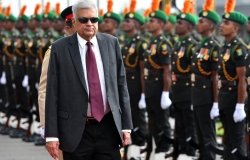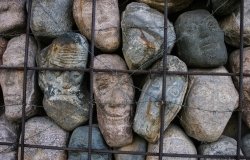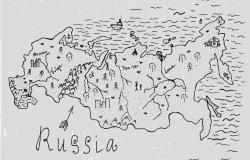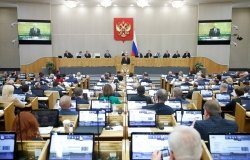Clashing Between Religion and Raki? The Struggle of the Turkish Elites
Michael Thumann, Bosch Public Policy Fellow, Transatlantic Academy and Middle East Bureau Chief, DIE ZEIT
Overview
Turkey's progress toward greater transparency and democratic legitimacy will depend upon the government's ability to adopt constitutional reforms aimed at devolving power from the centralized state, Michael Thumann asserted. The current political environment in Turkey is characterized by a profound clash between two groups, which Thumann distinguished as the "classic" and "periphery" elites. The rise of the periphery elite from Turkey's rural regions has created a new and powerful social force, which is vying for economic and political power with the classic secular elite.
Beginning in the 1950's, vast internal migration to the cities has resulted in a long-term sociological shift that has grown visible both in the political and public sphere. Thumann raised the example of the city of Kayseri—with its blend of mosques and industrial zones—to illustrate the unique juxtaposition of modernity and piety. Market liberalization initiated by former Prime Minister Turgut Özal allowed a budding Anatolian middle-class to flourish. Pious entrepreneurs established competitive industries that significantly contributed to Turkey's economy. Their economic success has widened their sphere of influence to include higher education institutions and media outlets. Traditionally secular universities have witnessed a spike of students from devout backgrounds, and increasingly Anatolian patrons have founded their own conservative institutions. Thus, secular business leaders that had a monopoly on public opinion for decades now have competition from this burgeoning social group, which can challenge the Kemalists by promoting their conservative views in the mass media.
The ascendency of the Justice and Development Party (AKP), which has controlled political institutions since its electoral success in 2002, was fueled by the migrants' economic successes and upward mobility. As Thumann's research indicated, classic Kemalists fear that the urban culture they had once dominated, both politically and professionally, is coming under threat by rural masses.
Thumann posited that the current constitution is unsuitable to cope with this evolving transformation. Presented under the tutelage of the army in the early 1980s, the constitution was an effort to preserve stability by limiting citizens' access to power and institutional checks and balances. Writers of the constitution envisaged that while the government would be elected by the people, key institutions (namely, the presidency, the army, and the constitutional court) would remain in the hands of the classical elites. The state bureaucracy, the military and the judiciary were meant to restrain the influence of the Prime Minister and his cabinet. This system was severely shaken when AKP's Abdullah Gul claimed the presidency in 2008, Thumann explained.
The AKP, Thumann noted, is not an Islamist party, but rather a melting pot of devout Muslim and conservative forces consisting of Turkish nationalists, liberal reformers and pious businessmen that support further economic liberalization. AKP's strength is derived from institutions that the Kemalist elite had built to safeguard their own political supremacy. Arriving from the periphery, Tayyip Erdogan, once a critic of Kemalist established institutions, has grown increasingly comfortable with using it to take control of the center. The waning popular support and the splintering of the secular elite has made it difficult for any opposition to challenge the political dominance of the AKP.
Since regions and cities continue to be deprived of participation in national-wide decisions, the state remains highly centralized which, according to Thumann, further hinders Turkey's progress at democracy and its European Union aspirations. In conclusion, he noted that the country needs "a profound reform of the basic law which would aim at decentralizing and further democratizing Turkey at the same time."
By Herma Gjinko and Andri Peros
Christian Ostermann, Director, European Studies
Hosted By

Global Europe Program
The Global Europe Program is focused on Europe’s capabilities, and how it engages on critical global issues. We investigate European approaches to critical global issues. We examine Europe’s relations with Russia and Eurasia, China and the Indo-Pacific, the Middle East and Africa. Our initiatives include “Ukraine in Europe” – an examination of what it will take to make Ukraine’s European future a reality. But we also examine the role of NATO, the European Union and the OSCE, Europe’s energy security, transatlantic trade disputes, and challenges to democracy. The Global Europe Program’s staff, scholars-in-residence, and Global Fellows participate in seminars, policy study groups, and international conferences to provide analytical recommendations to policy makers and the media. Read more

History and Public Policy Program
The History and Public Policy Program makes public the primary source record of 20th and 21st century international history from repositories around the world, facilitates scholarship based on those records, and uses these materials to provide context for classroom, public, and policy debates on global affairs. Read more

Middle East Program
The Wilson Center’s Middle East Program serves as a crucial resource for the policymaking community and beyond, providing analyses and research that helps inform US foreign policymaking, stimulates public debate, and expands knowledge about issues in the wider Middle East and North Africa (MENA) region. Read more
Thank you for your interest in this event. Please send any feedback or questions to our Events staff.










